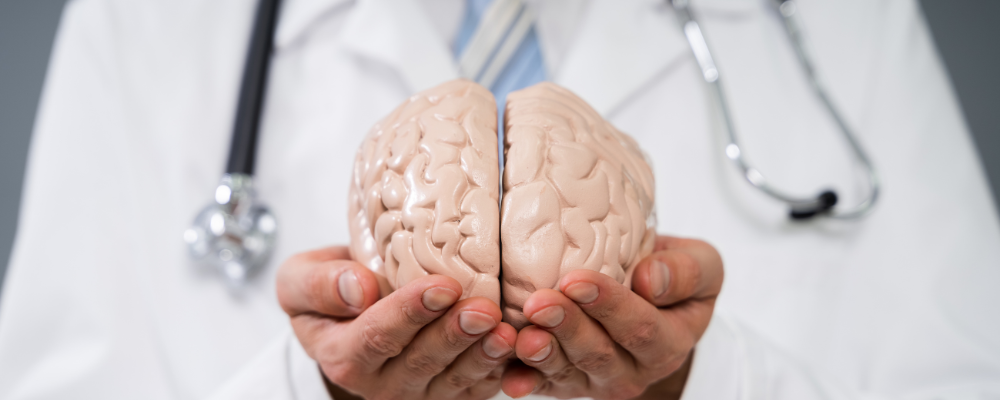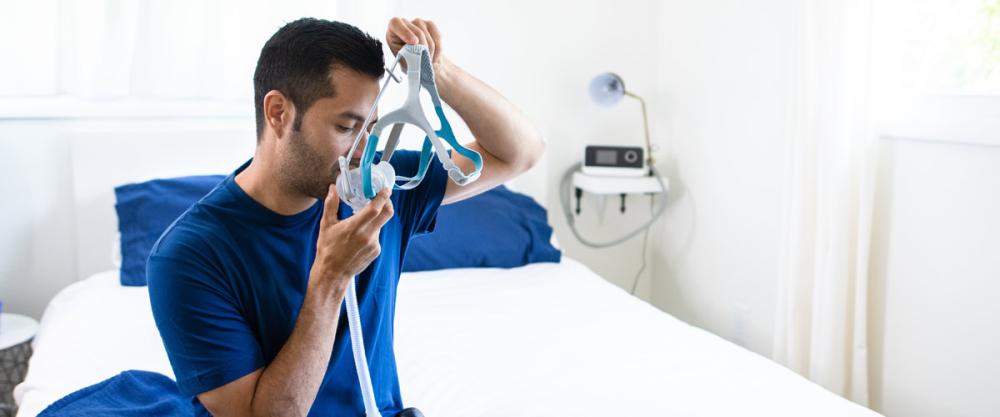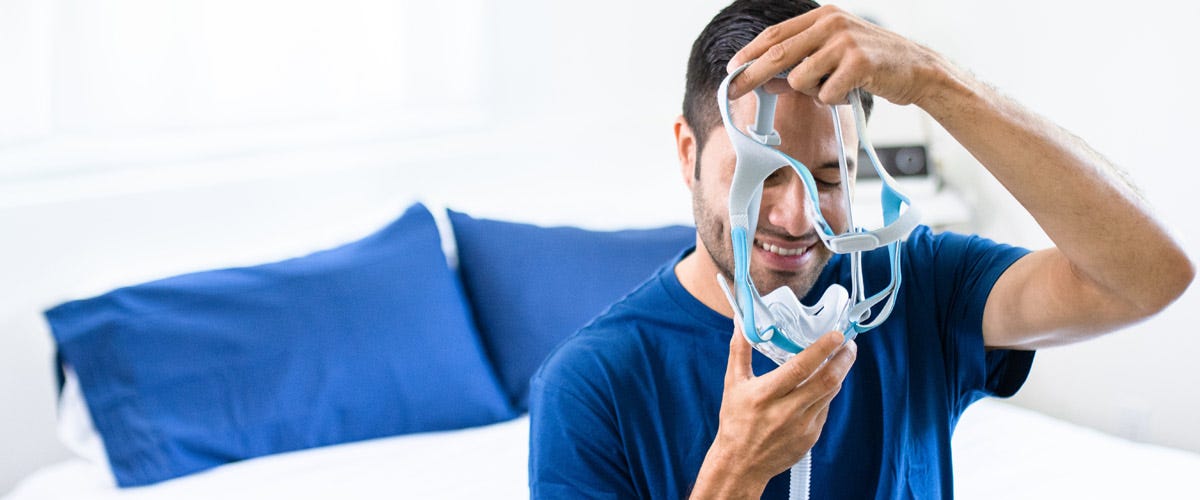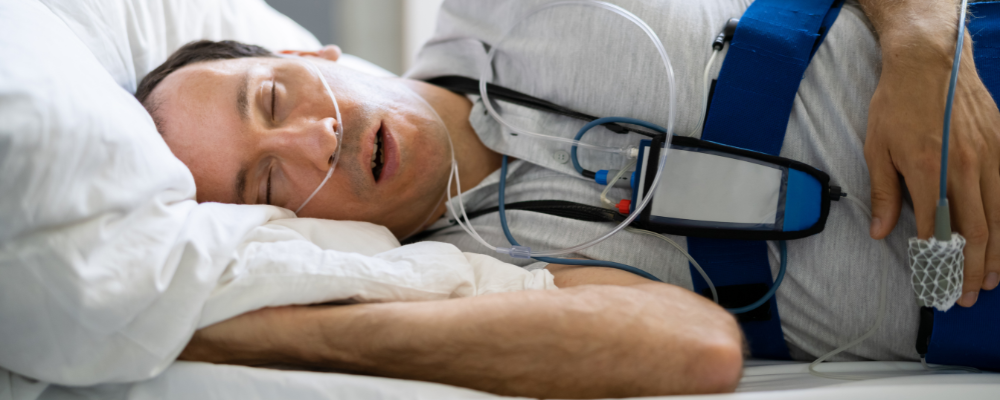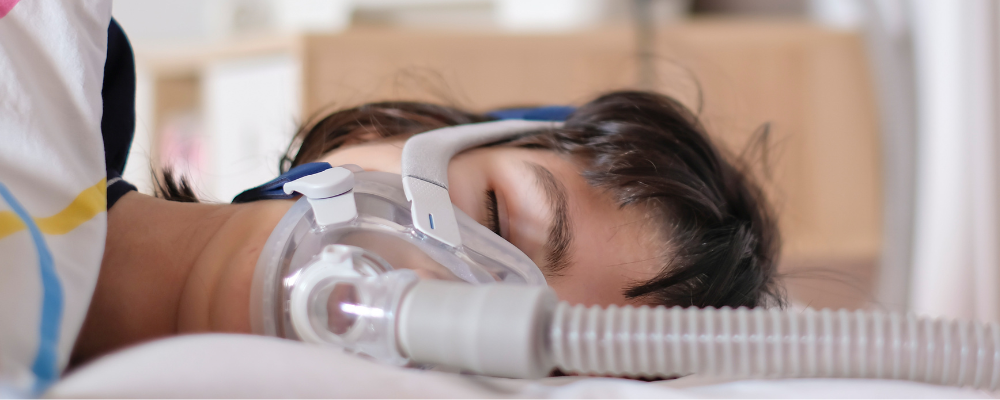After a miserable night of sleep, the brain fog creeps in. It’s hard to think, hard to concentrate. You want to be positive, to function as normal, but you can’t. You will do almost anything to wake up. You try having an extra cup of coffee, blasting upbeat music, or grabbing a sweet treat. However, if you have sleep apnea, you may be starting each day with a strained brain already, and this could lead to brain damage. People who have sleep apnea stop breathing during their sleep, occurring anywhere from just a few times to several times per night. In this blog, Dr. Monique May, Board-Certified Family Physician and Medical Advisor for Aeroflow Sleep, helps us learn about four ways sleep-apnea negatively affects your brain.
1: How Sleep Deprivation From Sleep Apnea Starts
Sleep apnea causes a lack of oxygen. Obstructive Sleep Apnea (OSA) is caused by a blocked upper airway that prevents air from entering. Having a lot of excess upper airway tissue—such as what is seen in people with obesity—increases the risk for OSA, the most common type of sleep apnea. Central Sleep Apnea (CSA) occurs when the brain doesn’t send the right signals to the muscles that control your breathing. A combination of both OSA and CSA is called Mixed Sleep Apnea.
No matter which type of sleep apnea you have, your sleep is interrupted as your body struggles to restore airflow. These constant interruptions can cause damage to brain tissue, and when combined with lack of oxygen, prevent you from receiving sound, restorative rest. While you may not become fully awake each time this happens, you are unable to achieve the sustained, deep sleep that your body needs. This results in feeling tired and groggy the next morning, leaving you not-quite-ready to face the day.
Dr. May expounds, "As a result of all of this, some symptoms that may be caused by sleep apnea include:
- Memory Loss
- Chronic Fatigue
- Mood Swings
- Confusion
- Irritability
- Lacking Concentration..."


2. How Sleep Apnea Disrupts Your Circadian Rhythm
By causing multiple disruptions in your sleep, sleep apnea can throw off your body’s internal clock, or circadian rhythm. During sleep, the brain regenerates itself, helping to form memories, improve recall, and help with creativity. In addition, sleep deprivation, caused by OSA or otherwise, prevents synapses from communicating as well as they should. Synapses are special connections between brain cells. So when sleep apnea disrupts your circadian rhythm, it results in fewer opportunities for synapses to form and communicate, affecting memory and cognitive function.
Furthermore, studies suggest that when the circadian rhythm is disrupted, mitochondria do not produce enough energy for cells. These changes impact cognitive function, the heart, blood pressure, kidneys, and more. In fact, the University of California: Irvine found last year that circadian clock disruptions impact genome stability, leading to mutations that could then eventually lead to tumors…and, ultimately, brain damage.
"New research reveals the circadian clock influences cell growth, metabolism, and tumor progression. Study illustrates how both genetic and environmental disruption of the circadian clock can drive colorectal cancer progression." - University of California: Irvine
3: How Sleep Apnea Damages The Brain
Additional research has been done to determine if sleep apnea causes physical damage to the brain. In 2010, a group of men with sleep apnea were compared to a group of healthy men by Seung Bong Hong, MD, PhD, professor of neurology at the Samsung Medical Center in Sungkyunkwan University School of Medicine in Seoul, South Korea. MRI scans of the brain showed a reduction in gray matter concentration in the men with severe OSA. Gray matter refers to the part of the brain responsible for movement, memory, and emotions. As the brain is starved of oxygen, nerve cells in the gray matter die, which can even cause depression, moodiness, and irritability. Plus, another coaltion of researchers discovered an increase in heart problems that can lead to heart failure or heart attacks.
Sleep apnea also affects the chemical balance of the brain. Yet a fifth study showed that patients with OSA had reduced levels of the brain chemical, gamma-aminobutyric acid (GABA) but increased levels of glutamate. GABA and glutamate have opposite effects on our brains: glutamate excites us and GABA calms us down. Low levels of GABA can result in anxiety, and high levels of glutamate can be harmful to brain tissue, which (again) damages the brain.
4: How Sleep Apnea Leads To Memory Loss
Lastly, sleep apnea can lead to memory loss. The saying “let me sleep on it” actually has some science behind it. One of the benefits of sleep is to consolidate, or solidify, memories. So sleep apnea affects memory in two ways: for starters, when you’re tired, your brain misfires, making it more difficult to recall short-term memories. It becomes harder to remember what you had for breakfast, what time your meeting is tomorrow, or the name of that actor from that one movie. The second; not getting enough deep sleep prevents your brain from processing the days’ events and leads to impaired memory.
Therefore, Dr. May reminds us, “Sleep does a body good, starting at the top with your brain. Be sure to see your doctor if you have sleep issues, whether sleep apnea-related or not.”
Can Sleep Apnea Brain Damage Be Reversed?
As we have seen, memory impairment, mood imbalances, concentration, and learning difficulty can all result from untreated OSA. The good news is that the damage we see from OSA can be reversed. Although scientists are still reviewing the subject, some already believe that gray matter volume can be restored in as little as three months with the use of a CPAP (continuous positive airway pressure.)
CPAPs work by delivering a steady stream of air to your mouth and nose, which holds your airways open and prevents apneic events (periods when you stop breathing during the night). This way, your brain and body can receive the much-needed oxygen to properly rest, heal, and prepare for tomorrow. Plus, many sleep apnea patients feel quick relief from their sleep apnea symptoms once they begin CPAP therapy; such as reduced daytime sleepiness, waking up without a headache, no more snoring, etc.
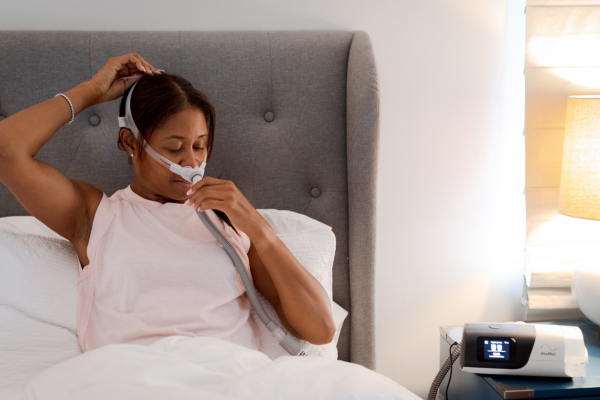

If you suspect you have sleep apnea and want to prevent brain damage before it starts, consider asking your doctor for a sleep study. You can go to a sleep lab or use an at-home sleep test. Once diagnosed, Aeroflow Sleep can help you through every step of the sleep apnea journey; from contacting your insurance, to matching you with the perfect CPAP machine, and replacing your CPAP supplies on a regular schedule.
Already diagnosed with sleep apnea? Give us a call at 1-800-480-5491 or fill out our online form, so we can determine if you’re in-network with us and start your new CPAP order.
References
“Brain Damage Caused by Severe Sleep Apnea Is Reversible.” Press Releases., 6 Nov. 2017, aasm.org/brain-damage-caused-by-severe-sleep-apnea-is-reversible/.
Cirelli C. Sleep and synaptic changes. Curr Opin Neurobiol. 2013 Oct;23(5):841-6. doi: 10.1016/j.conb.2013.04.001. Epub 2013 Apr 23. PMID: 23623392; PMCID: PMC4552336.
Willingham, Emily. “Sleep Deprivation Shuts Down Production of Essential Brain Proteins.” Neurology, 10 Oct. 2019, www.scientificamerican.com/article/sleep-deprivation-shuts-down-production-of-essential-brain-proteins/?linkId=75164243.
University of California - Irvine. "New research reveals the circadian clock influences cell growth, metabolism and tumor progression: Study illustrates how both genetic and environmental disruption of the circadian clock can drive colorectal cancer progression." ScienceDaily. ScienceDaily, 10 August 2022. <www.sciencedaily.com/releases/2022/08/220810161028.htm>.
American Academy of Sleep Medicine. "Reduced brain gray matter concentration found in patients with severe obstructive sleep apnea." ScienceDaily. ScienceDaily, 2 February 2010. <www.sciencedaily.com/releases/2010/02/100201091638.htm>.
Jean-Louis, G., Zizi, F., Brown, D., Ogedegbe, G., Borer, J., & McFarlane, S. (2009). Obstructive sleep apnea and cardiovascular disease: evidence and underlying mechanisms. Minerva pneumologica, 48(4), 277–293. https://pubmed.ncbi.nlm.nih.gov/21643544/
Macey, P.M., Sarma, M.K., Nagarajan, R., Aysola, R., Siegel, J.M., Harper, R.M. and Thomas, M.A. (2016), Obstructive sleep apnea is associated with low GABA and high glutamate in the insular cortex. J Sleep Res, 25: 390-394. https://doi.org/10.1111/jsr.12392
Canessa N, Castronovo V, Cappa SF, Aloia MS, Marelli S, Falini A, Alemanno F, Ferini-Strambi L. Obstructive sleep apnea: brain structural changes and neurocognitive function before and after treatment. Am J Respir Crit Care Med. 2011 May 15;183(10):1419-26. doi: 10.1164/rccm.201005-0693OC. Epub 2010 Oct 29. PMID: 21037021.


